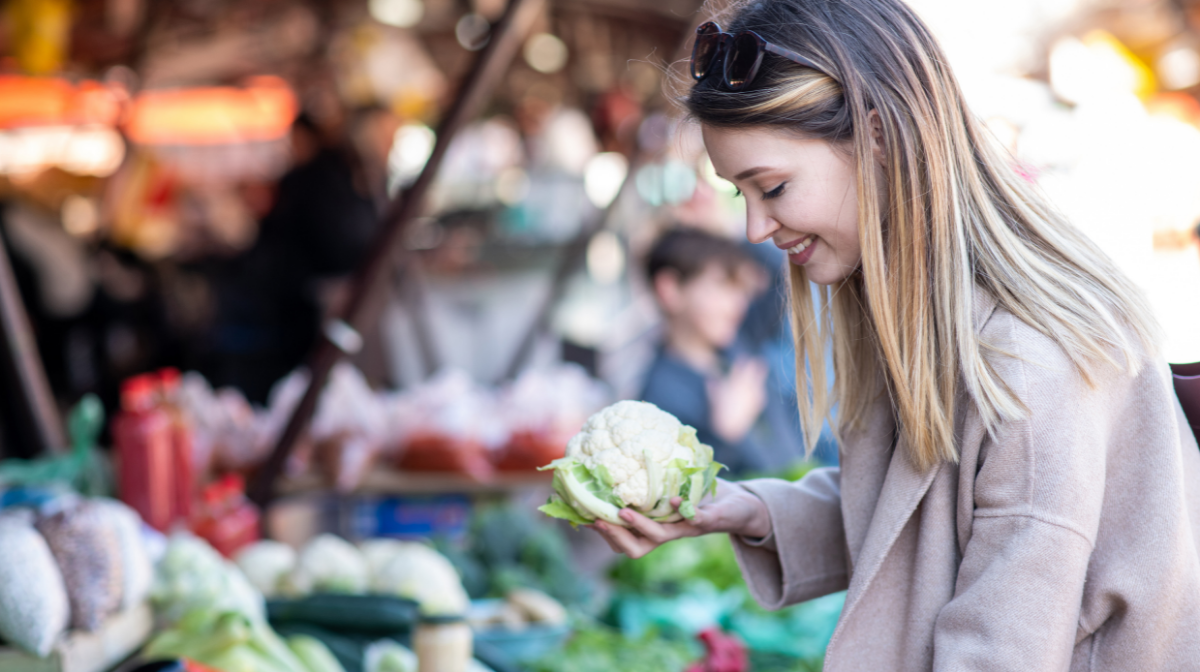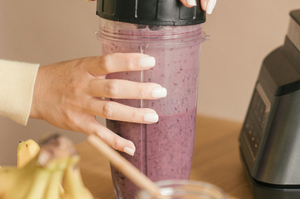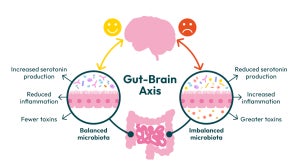
Did you know that avocado is actually part of the pear family? Or that the greens attached to the beetroot stalk are delicious and can be prepared like spinach? There's so much about our delicious fruit and veg that we don't know, so our Nutritional Experts have put together some interesting facts about some of their favourites:
SWEDE
Swedes (also known as rutabagas) are a root vegetable that belongs to the Brassica genus of plants, whose members are informally known as cruciferous vegetables.
Swedes are an excellent source of potassium, calcium, magnesium, and vitamins E and C. They also contain a moderate amount of folate, a B vitamin that’s important for metabolism, protein synthesis, and DNA replication.
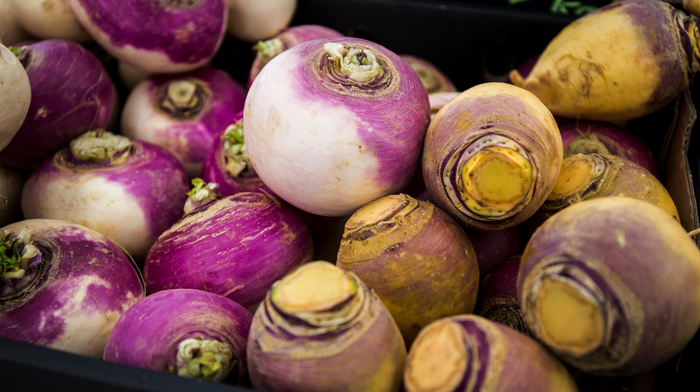
Swedes also contain high amounts of glucosinolates, vitamin C and vitamin E, which are compounds with antioxidant properties, helping to protect us from cellular damage.
They are also an excellent source of fibre. One medium swede (around 385 grams) provides 9 grams of fibre, which is almost a third of the recommended daily fibre intake. Fibre feeds healthy species of gut bacteria, promoting a healthy microbiome.
Swedes are a rich source of potassium, which plays many important roles in your body. One medium swede (around 385 grams) provides 1,180mg of potassium. Potassium is important for nerve signalling and muscle contraction. It also works closely with sodium to regulate fluid balance, which is important for maintaining healthy blood pressure.
How to cook:
Swedes can be prepared in many different ways and are available throughout the winter months. Due to their versatility in flavour and preparation methods, swedes can replace potatoes, carrots, turnips, and other root vegetables in many recipes. Unlike most vegetables the colour of swede deepens with cooking. Perhaps the simplest way of cooking them is to top, tail and peel, cut into chunks and then boil for 20 minutes before mashing with butter or olive oil and a little black pepper and salt.
PUMPKIN
Like cantaloupe, watermelon, cucumber, and squash, pumpkins belong to the gourd or Cucurbitaceae family. Within this family, the genus Cucurbita contains all of the pumpkins.
Plants that have a close relationship to the soil, such as pumpkins and their seeds are often excellent sources of minerals. Pumpkin seeds are a good source of the minerals phosphorus, magnesium, manganese, copper, zinc and iron.
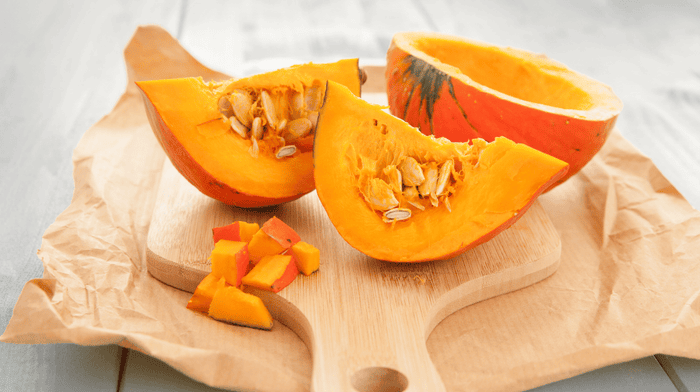
Pumpkin seeds have long been valued as a source of the mineral zinc, and the World Health Organization recommends their consumption as a good way of obtaining this nutrient. If you want to maximize the amount of zinc that you will be getting from your pumpkin seeds, consider purchasing them in unshelled form and roasting them whole, as zinc is especially concentrated in the endosperm envelope which sits just below the shell.
Pumpkin seeds can also be valued for their anti-microbial benefits, including anti-fungal, anti-parasitic and anti-viral properties. Research points to the role of unique proteins in pumpkin seeds as the source of many antimicrobial benefits, along with their lignan content.
How to roast pumpkin seeds:
Place the pumpkin seeds (whether scooped from a pumpkin or shop-bought) in a single layer on a baking tray and lightly roast them in the oven at around 75°C for 15-20 minutes.
When roasted for longer than 20 minutes, a number of unwanted changes in the fat structure of pumpkin seeds have been observed by food researchers. Roasting for no longer than 20 minutes will help you avoid these unwanted changes.
AVOCADO
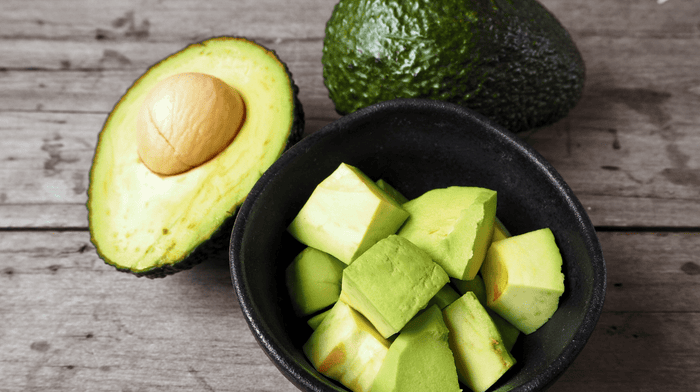
Originally called the 'Alligator Pear', avocados contain an amazing array of phytonutrients. These include phytosterols, carotenoids (such as beta-carotene, lutein and zeaxanthin), flavonoids (epicatechin and epigallocatechin 3-0-gallate) and oleic acid. Avocados are also a good source of vitamin B5, vitamin K, copper, folate, vitamin B6, potassium, vitamin E and vitamin C. One cup of avocado (around 150 grams) contains a whopping 10.5 grams of fibre (over 1/3 of the daily recommended intake for adults). Avocados are also low glycaemic index, meaning they don’t cause large spikes in blood glucose levels.
Fruit or vegetable?
Avocados are technically fruits but have a higher fat content, about 20 times the average for other fruits. A typical avocado contains 20-30 grams of fat, but the majority of these are health-promoting monounsaturated fatty acids, and in particular oleic acid, which accounts for over 60% of the total fat content.
Did you also know that the way you peel an avocado may affect how good it is for you? The part of the flesh closest to the skin is higher in certain phytonutrients than the flesh closer to the stone. The recommended method for peeling is, therefore, the "nick and peel" where you peel the avocado with your hands, rather than cutting the skin off with a knife.
BERRIES
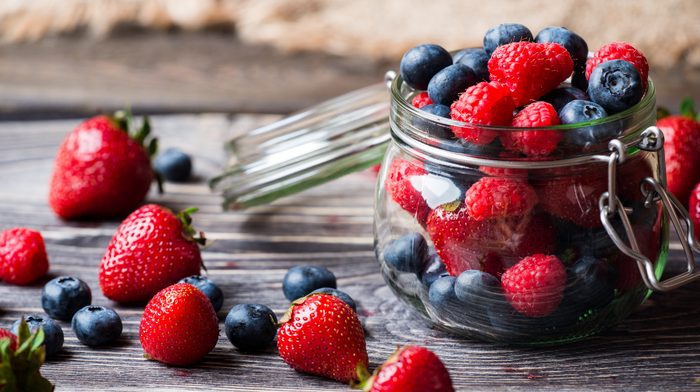
Berry fruits such as strawberries, blackberries, blueberries, raspberries, grapes, cranberries are all high in antioxidants, vitamin c and fibre. Berries offer a great low calorie snack as they have such a high water content (approximately 85%).
Many berries have wild varieties with even higher nutrient content. These can be foraged from the hedgerows and the great news is that studies show the nutrient content is not compromised with freezing! They are great to bring out for smoothies and crumbles in the winter months.
PASSION FRUIT
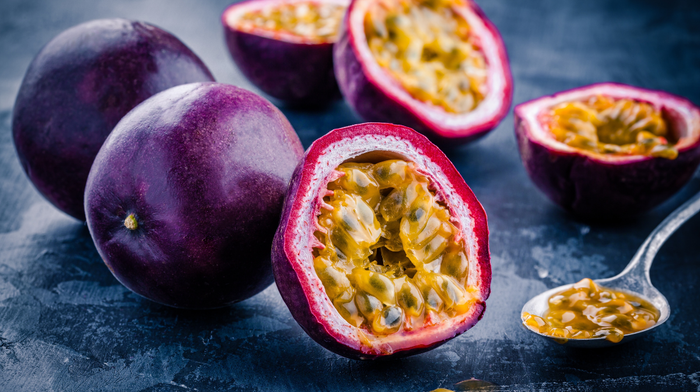
Did you know passion fruit is the fruit of the Passiflora vine, a type of passion flower. They are a source of vitamin C, iron, vitamin A and potassium and contain only around 17 calories per fruit.
They are also rich in beneficial plant compounds, including carotenoids and polyphenols. A single fruit serving of passion fruit also provides around 2 grams of fibre — quite a lot for such a small fruit.
Many of the nutrients in passion fruit have been associated with significant health benefits, for example, anti-oxidant and anti-inflammatory effects, immune support and heart-health.
Written by Hannah Braye

Related Articles

